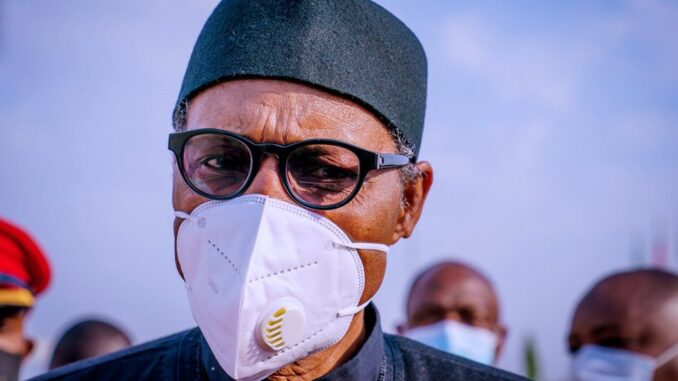
In a seeming spotlight of the fragility of the Nigerian state, the governors of eastern Nigeria rose to establish a local security outfit co-named Ebube Agu as an outcome of the South East Security Summit that was held in Owerri a couple of weeks ago.
This is coming after the proscribed Indigenous People of Biafra (IPOB) took the initiative to set up the Eastern Security Network (ESN) to protect the Igbo nationality from the apparent failure of the central authorities to protect the eastern landscape, ungoverned in ways that it became the den of herdsmen atrocities and other criminal forces.
The security summit was attended by the governors of the five eastern states, namely, Ifeanyi Ugwuanyi of Enugu, Willie Obiano of Anambra, David Umahi of Ebonyi; Hope Uzodimma of Imo; and Dr. Okezie Ikpeazu of Abia. Others include the President-General of Ohanaeze Ndigbo, Ambassador George Obiozor, and Deputy Inspector General of Police, J. O. Egbunike.
The eastern governors have taken the right step. More so, coming after the resurgent and disturbing upsurge of violence and killings in the geopolitical underlined by brazen attacks on state institutions and facilities in Imo State, massacres in Ebonyi, and unrelenting kidnapping. By some estimate over 67 security agents, comprising the police, navy, and prison wardens, have been killed by gunmen in the Southeast and South-South since December last year. This reality was acknowledged in their communiqué that, “strongly and unequivocally condemn terrorism and banditry in any part of Nigeria, particularly in the Southeast. The meeting strongly condemned the burning of police stations, violent attacks on custodial centres with the unlawful release of inmates, and the killings including security personnel, natives/farmers and herdsmen.”
Therefore, the governors resolved to maintain a joint security vigilante for the Southeast, otherwise known as ‘Ebube Agu,’ meaning fear of a lion in Igbo. In this respect, according to the communiqué of the summit, the political leadership in the Southeast is “resolved to bring together all the arsenals at their command, as one united zone, to fight and flush out criminals and terrorists from the zone. That the heads of all the security agencies in the South-East have resolved to exchange intelligence in a seamless, effective new order that will help to checkmate crime in the zone.”
By this action, the southeast is merely following the steps taken by the Southwest governors who formed ‘Amotekun’ to combat the menace of Fulani herdsmen and other criminal gangs in the region. The real point is that this effort is coming too late and the faint-hearted Igbo elite had been unable to decipher what they wanted in the badly governed Nigerian state. It would be recalled that as far back as 2019 the Southeast governors met in Enugu and agreed to set up an integrated security network to oversee the zone. As part of the design, forest guards were to be established in the states in addition to a centre for Southeast Integrated Security Monitoring/Intelligence gathering. It would appear that the effort made by Inspector General of Police, Mohammad Abubakar to sell community policing as distinct from state police that meets the federal criterion threw spanner in the works. Therefore, the governors need to be clear about what they want. By the view expressed in the communiqué, it is likely to be mired in the complexities of federal security agencies in the zone.
A more important issue regarding the security outfit is its latent function—to undermine initiative taken by IPOB to protect the peoples of the southeast, a duty that the governing elite in the region through sheer complacency have refused to perform. We envisage a situation in which the new outfit might be on collision course with the ESN, consequently leading intra-Igbo violence. This fear has been expressed by well-meaning Igbo personalities who felt that the governors ought to have recognised the ESN set up by IPOB since late last year. IPOB leadership warned that no security outfit could be thrown up in the zone aside from the ESN that would not face resistance from the people. In the words of the IPOB’s Media and Publicity Secretary, Comrade Emma Powerful, “Any security outfit other than ESN in the old eastern region by the governors will incur the wrath of the ESN. Where were these governors before now? Our people have rejected them and their mode of security. We were easily killed and throughout last year, the people kept asking them for protection, but what did they do? They were busy protecting those killing their people.” On its part, the Movement for the Actualization of the Sovereign State of Biafra (MASSOB), warned against the politicisation of the new outfit to the effect that, “Southeast governors should delete their political party interest, personal political interest, and personal ego and work together as one Igbo family to achieve the goal of Ebube Agu.”
However, the point should be made that the right to establish state police is a pre-condition for federalism. The 1994 Ethiopian Constitution advertises this essentiality. In its Article 54 (g) on the powers and functions of states, it states that states have the powers “to establish and administer a state police force, and to maintain public order and peace within the state.’Need we look elsewhere for another example? All these state security outfits including a northern group’s moribund Shege Ka Fasa point to the inevitability of organic state police structure in the manner the Ethiopian people have demonstrated in their Constitution. How many editorials will the Nigerian press have to write before the Buhari administration would implement its political party manifesto and reports the same administration commissioned to address federalism, the answer the country needs to address its current ‘national question’ and unbridled borrowing for consumption?
END

Be the first to comment